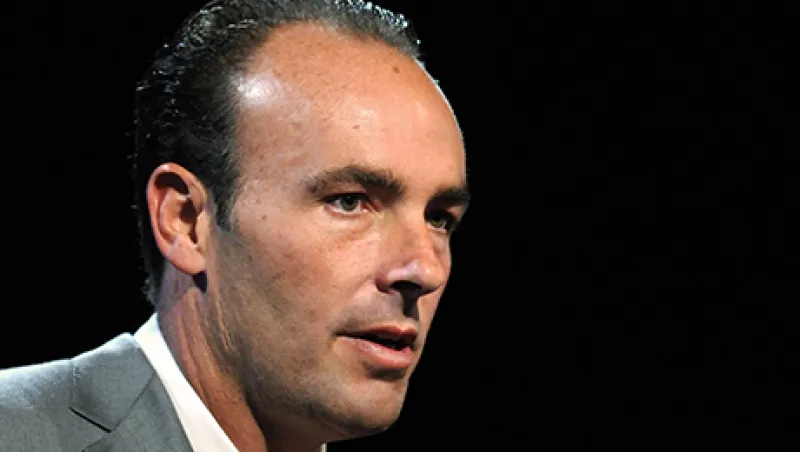Drugmakers beware: In October hedge fund manager J. Kyle Bass got proof of concept for his controversial new strategy of shorting the stocks of pharmaceuticals companies while contesting their drug patents. After the Patent Trial and Appeal Board (PTAB) shot down his first three challenges, the U.S. Patent and Trademark Office’s panel of judges approved Bass’s request to review the patent for Lialda, which gives Dublin-based Shire a monopoly over the colitis medication until 2020.
The breakthrough for Bass’s Hayman Capital Management — famous for making a killing in 2007 by betting against subprime mortgage securities — comes as prescription drug prices face intense scrutiny from the U.S. government, including a federal investigation into the pricing scheme at Canada’s Valeant Pharmaceuticals. Alleged gouging by drug companies sparked public outrage in September after New York–based Turing Pharmaceuticals, run by former hedge fund manager Martin Shkreli, purchased the rights to the popular Daraprim, which treats malaria and toxoplasmosis, and boosted its price by more than 5,000 percent.
In the weeks that followed, pharmaceuticals stocks got whipsawed: The NYSE Arca Pharmaceutical Index has nose-dived almost 10 percent since its peak in August, probably to Hayman’s benefit.
As of September 7, Bass and affiliated organizations had filed 32 inter partes review petitions — a relatively cheap method of disputing patents that dates back to 2012 — against 11 pharmaceuticals companies through a collection of limited liability corporations known as the Coalition for Affordable Drugs. Each entity is a wholly owned subsidiary of the Hayman Credes Master Fund, which launched earlier this year to short companies holding patents it disputes while investing in those that could benefit from the patents’ being invalidated.
Bass, 46, founded Hayman in late 2005. He began investigating the residential mortgage market; convinced of its weakness, he bought large swaths of credit default swaps on the mortgage-backed securities he determined were most likely to default. After the mass foreclosures in the U.S. housing market at the end of 2007, Hayman earned a 212 percent return for the year, and Bass saw his name in lights, making television appearances and giving expert testimony before Congress.
But in the eight years since, he has yet to score another big win. The Hayman Capital Master Fund has posted relatively low annualized returns of 1.56 percent during that period, according to one report, and a 1.47 percent loss last year had investors pulling their money. Bass’s Dallas-based firm, which didn’t return calls and e-mails requesting comment, manages $2 billion.
Could pharmaceuticals be Bass’s next mortgage crisis? He hatched this novel strategy with Erich Spangenberg, a Dallas-based lawyer and intellectual property consultant whom critics have called a patent troll owing to the volume of challenges he’s raised with his IP Navigation Group, which has initiated more than 1,600 patent lawsuits. Bass and Spangenberg reportedly met last year through mutual friends, and both are listed as interested parties alongside the Coalition for Affordable Drugs in each of the petitions filed.
Bass’s coalition launched its first two challenges in February, against Ardsley, New York–based Acorda Therapeutics’ patent on Ampyra. A tribunal for the patent office denied both efforts, but Bass, undeterred by the setback, filed four more petitions aimed at the multiple sclerosis medication in September. Other prominent targets include U.S. companies Biogen and Bristol-Myers Squibb and Dublin-headquartered Jazz Pharmaceuticals.
In an August petition against Celgene, a Summit, New Jersey–based biotechnology firm, the coalition argued that “poor quality patents enable pharmaceutical companies to maintain artificially high drug prices and reap unjust monopoly profits paid for by consumers and taxpayers.”
Many Bass detractors doubt that his motives entail anything more than investment gains. But in September the PTAB rejected Celgene’s claim that his monetary interests should invalidate petitions against five of the company’s patents, stating in its decision that “profit is at the heart of nearly every patent.”






